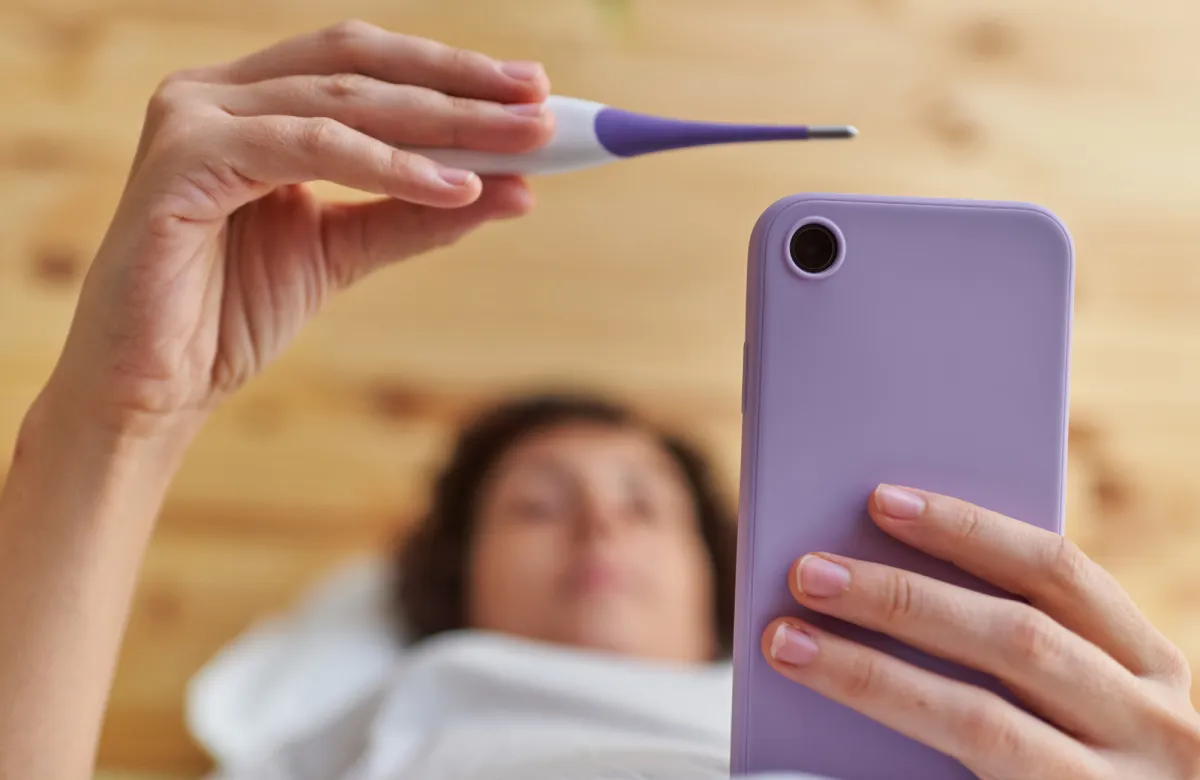
Understanding the signs of ovulation:
Find your Fertile Window

Do you know when you ovulate?
Are you missing your fertile window?
WHEN DO YOU OVULATE? DEMYSTIFYING CONCEPTION
Hey Ladies! Let’s get really clear on this fact: if you are unsure when you are ovulating, this is the first step to demystifying conception. Sometimes women conceive without even trying. For those who are trying to conceive but it is not happening when you want it to, the first thing to rule out is whether you are missing your fertile window.
The fertile window is the time of the month that you can conceive. This is typically a 24 to 36 hour time frame when all conditions are perfect for fertilization of the egg. During this time frame if you have ovulated and your partner’s sperm is available to fertilize the egg, you are more likely to conceive. Knowing exactly which day in your monthly cycle you ovulate increases your chances of getting pregnant.
A study conducted in the United States showed that approximately 40% of women had no knowledge of their ovulatory window. A similar US study also confirmed that 51% of women did not know when their fertile window in their menstrual cycle was. An Australian study confirmed that 40% of women were unclear about their menstrual cycles and fertilization. Results of another study in Turkey, showed that only 40% of women were well informed about when they could conceive based on knowing their ovulation date. (1)
Discovering the exact day of your cycle that you ovulate will help you understand your body better, your fertility will be more in your control and you will be able to confirm the exact day in your cycle you will have the best chances of conception.

What is ovulation?
Ovulation is when your ovaries have released the egg from the storage in the ovaries, the egg then travels up the fallopian tube and lands in the uterus. It will wait patiently for 24-36 hours for fertilization. This typically happens mid month, but it can vary slightly person to person depending on many individual factors such as stress levels, nutrition, body mass index, hormone balance and more.


How to track your ovulation?

There are signs that indicate whether you are ovulating and if you are wanting to conceive it is recommended that you begin to track the day of the month to see a pattern of the average day you ovulate every month. Many women have been taught that ovulation occurs 14 days before your next menstruation and that women are fertile for several days before and after ovulation. However, studies confirm that only a small percentage of women ovulate exactly 14 days after their last period. In fact, it was confirmed in a study of 69 women only 10% ovulated on day 14. (2)
Thus, the fertile window can occur much earlier or later in the cycle than clinical guidelines suggest and you may not ovulate on the same day every month. Some women ovulate on day 14 of their 28 day cycle, some women ovulate on day 6 of their 28 day cycle. This is why it is so important to know your particular day of ovulation.

How to track the day you ovulate:


Monitor cervical mucus: mid-month, on the day that your egg gets sent from your ovary to your uterus, you will produce clear stretchy mucus that comes from your cervix. This special mucus is the “vehicle” for sperm to travel through the cervix into the uterus to fertilize the egg. This mucus is present for one day only. Start to observe the presence or the absence of this mucus and keep notes monthly. It is possible to notice this on day 9 of your cycle in one month and yet it might be present on a different day in another month.
Take your basal body temperature: Your basal temperature is your resting temperature. Monitoring your temperature throughout the month under your armpit, using a basal thermometer before you get out of bed in the morning, will help you detect a change in your temperature after you have ovulated. This temperature increase is to help maintain a fertilized egg in the uterus should there be one. There should be a one degree Fahrenheit difference between the first half of your cycle and after ovulation. However, sometimes it is less than that, sometimes it is more than that. It also may not stay elevated for the duration of the last 2 weeks of your cycle. Again, get familiar with what your body’s signals are to help monitor your ovulation.
Measure your LH surge: measuring for the LH (Luteinizing Hormone) surge that accompanies ovulation is another way to track your monthly ovulation(3) The day you ovulate the LH hormone is at its highest. LH surge tests (also called Ovulation Predictor Kits OPKs) are available at your local pharmacy and they measure urinary spikes of LH that occur at the time of ovulation. In order to identify the day you have an LH surge, measure your morning urine for several days before you suspect you might be ovulating and until you see the spike in the LH hormone. Mark that day in your calendar and verify for several months that this is a consistent day.
Track on a calendar: it is important to keep track of the first day of your menstrual cycle as you will see variations month to month. Day 1 of bleeding is day 1 of your cycle. Knowing when day 1 is will help you identify the most likely day of ovulation after you have become familiar with your temperature, your cervical mucus or LH surge.
I often recommend that my patients use one or more methods of tracking their ovulation as there are many lifestyle factors that can interfere with regular ovulation such as stress, being undernourished, nutrient deficiencies, PCOS, endometriosis, and being on birth control. Once you have learned when you ovulate, you can plan intercourse for 1-3 days prior to ovulation for the best chances of conception. (4)

What are the signs of ovulation?:
There are subtle symptoms that women experience that can give them a clue as to when they might be ovulating. Before and during ovulation, hormonal shifts can affect the entire body, prompting ovulation symptoms.
Bloating can be a sign of ovulation: Women will often complain that they feel bloated on the day of ovulation, this is lower abdominal bloating that can be uncomfortable. Not every woman will have bloating before ovulation. While this is a common symptom, it may not be a reliable sign of ovulation. It is still important to track the day of ovulation explained above and because everyone is unique, keep track of the subtle signs of ovulation also so you have more information during your cycle.
Are backaches a sign of ovulation? Some women will experience back pain as a sign of ovulation due to hormonal changes that come before the mature egg leaves the ovary and heads to the uterus. Not every woman will have back pain as a sign of ovulation, they may have bloating and breast tenderness but no back pain.
Is breast tenderness a sign of ovulation? Sore breasts and or nipples can be another sign that you have ovulated. Hormones change drastically at the time of ovulation and this can be felt in breast tissue. It is possible to experience this tenderness just before ovulation and yet some women won’t feel it until right after ovulation occurs. While this breast tenderness is a common sign of ovulation, it is not sufficient to confirm you have ovulated, as you can have this rush of hormones but no mature egg is sent to the uterus.
Emotional changes and ovulation: Women can also experience weepiness, anxiety, insomnia and mood changes around ovulation due to the hormone shifts that happen right before ovulation. This can be a temporary change that resolves for the rest of the menstrual cycle or some women will feel emotionally different from ovulation to menstruation.
It is still important to track the day of ovulation because everyone is unique,




How do you know if you are ovulating after stopping the birth control pill?
It is difficult to know if you have ovulated immediately following discontinuation of birth control. There can be a complete lack of symptoms after stopping the birth control pill or other methods of contraception such as the NuvaRing or IUD.
It is important to track signs and symptoms of ovulation after stopping birth control, as it can take several months to resume ovulation. If after several months you have not resumed ovulation, it is important to consider speaking with your doctor or consider acupuncture, as this is a very effective method for restoring reproductive health and regular menstrual cycles.
Timing intercourse during your fertile window increases your chance of conception. Many women are unaware of the optimal time for conception because they are unaware of the day they ovulate. Because women’s bodies are all unique, it is important to discover for yourself the day of your fertile window.
Every person’s fertility is impacted by age, health parameters such as weight, stress, partner’s health and more, this also impacts the variability of ovulation. By tracking your body’s individual signals of ovulation, you not only will learn to listen to the cues of your body, you will also better understand your menstrual cycle and thus your reproductive potential.

Hi, I am Dr. Mary Shackelton, Naturopathic Doctor, who practices integrative medicine with an emphasis on women’s health.
My current focus is on Environmental Medicine and the conditions that are associated with toxic exposures: auto-immune diseases, fatigue, cognitive decline, hormone imbalances, mitochondrial dysfunction, and neurologic conditions.
Schedule your one-on-one consultation to help you lay a strong foundation for successfully conceiving and to help you build an internal terrain that is capable of creating a vital child.


ARE YOU STRUGGLING WITH FERTILITY?
CLICK BELOW TO LEARN MORE
I can help you remove obstacles to healthy conception
2024 maryshackelton.com | All Rights Reserved | Privacy Policy | Terms & Conditions
Materials on this website are provided for informational or educational purposes only, and are not intended as a substitute for the advice of your physician or healthcare professional.
Always consult with your physician or healthcare professional before embarking on any options offered here on this website.


